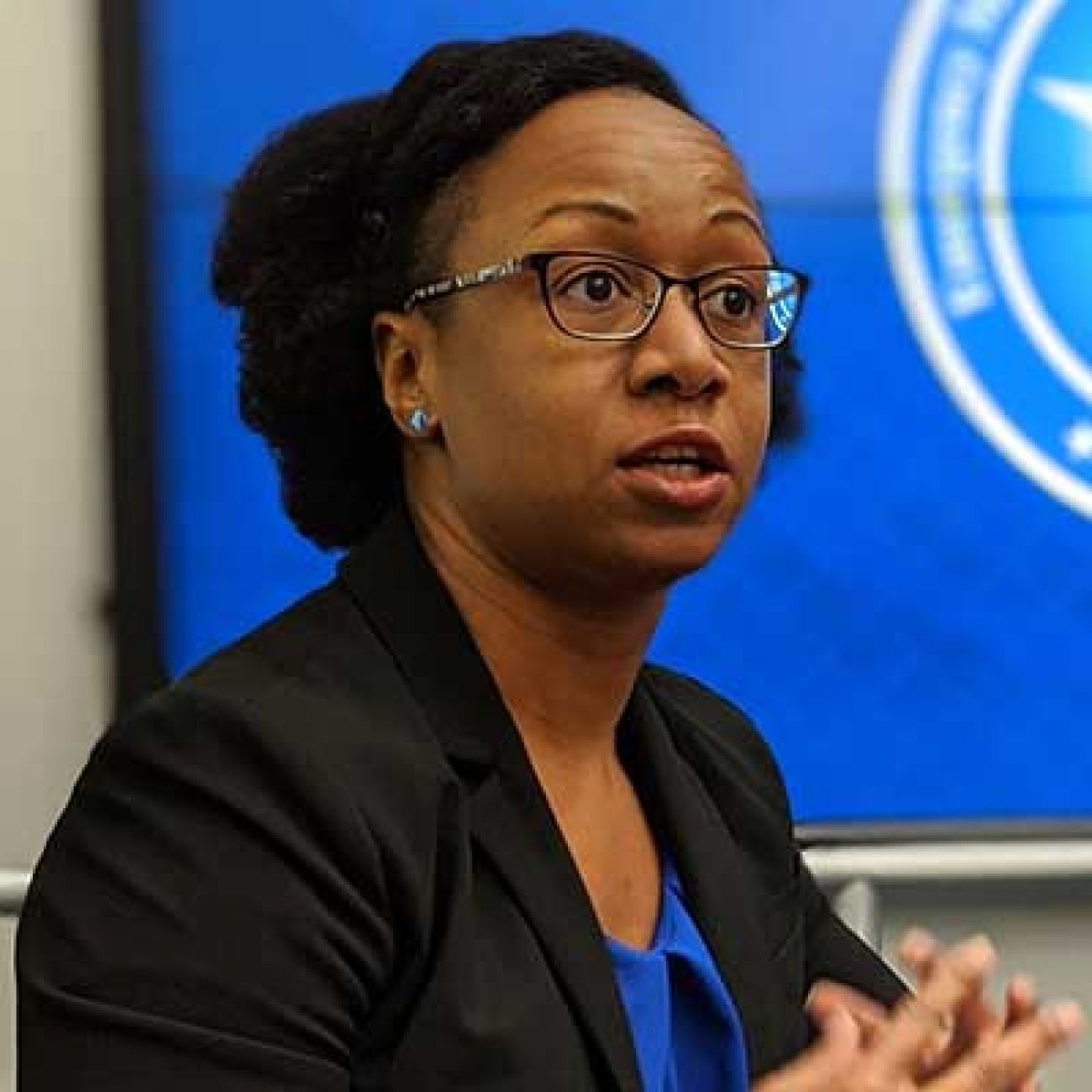Gretchen Whitmer says Michigan COVID ‘pause’ will go at least 12 more days

With COVID still surging and 79 percent of Michigan’s hospital beds full, Michigan will extend an economic “pause” across the state for at least another 12 days, Gov. Gretchen Whitmer announced Monday.
The new order, by the Michigan Department of Health and Human Services, was criticized by at least one business group that said the restrictions will cost businesses and jobs. The extension keeps indoor dining and bars, as well as bowling alleys, movie theaters and casinos, shut until Dec. 20, and perhaps longer. The original “pause” was scheduled to end Tuesday.
Keeping high schools online as the holidays approach effectively means in-person classes likely won’t resume until after the new year.
The state will monitor at least three pieces of health data — the number of COVID cases, hospitalization levels and rates of positive test results — to determine how and when to proceed with a careful reopening, Robert Gordon, MDHHS director, said Monday at the news conference.
“One thing we've learned is that progress against COVID is hard to earn and easy to lose. We need to reopen cautiously, not recklessly,” Gordon said.
High schools will be among the first places to reopen as the state health department monitors progress over the next 12 days. The Monday order immediately reopens some in-person career- and technical education classes.
Related stories:
- Will Michigan Supreme Court rescue restaurants from COVID dining ban?
- Michigan’s COVID indoor dining ban expires within days. Or will it?
- A small Upper Peninsula hospital pleads: You’re our neighbors, help us
Whitmer and state health leaders also called on Michiganders to avoid large gatherings over the December holidays, and limit celebrations to people in their households. Whitmer pulled from history, noting that residents have made shared sacrifices in the past: in preserving the union during the Civil War, fighting the Nazis and helping to pull the auto industry through a recession.
“The safest thing to do is to celebrate Christmas apart and find different ways to be together in spirit and emotionally connected. That's important,” Whitmer said. “I don't want anyone to think that I minimize that that is hard to do, but it's absolutely essential this year that we do that.”
Last month — as coronavirus cases surged and hospitals reported they were reaching capacity — Michigan shut indoor bars, restaurant dining rooms, high school classrooms and colleges for three weeks.
The order also canceled high school sports, and closed group fitness classes, movie theaters, bowling alleys and casinos. Michiganders also were told to work from home whenever possible.
With Monday’s extension of the November order, bars and restaurants must remain closed for dine-in service. Michiganders can go to the gym to exercise individually as long as they wear masks and follow safety measures. Remote learning continues at colleges, universities and high schools, though the new order opens technical education at high schools and trade and career centers to in-person learning when it can’t be done online.
Some professional and college sports may meet, but without spectators.
“Fragile” progress, big toll
Pausing the economy has taken its toll. The Michigan Restaurant & Lodging Association and two of its members asked for a temporary restraining order following the state’s restrictions in mid-November, a request denied by U.S. District Court Judge Paul Maloney just days after the original order.
Whitmer defended the restrictions Monday as “targeted and temporary” and noted that promising COVID numbers in the past few days indicate “fragile” progress.
“Businesses that are places where people come together inside from different households and remove masks … are uniquely at risk at this time,” Whitmer said.
Justin Winslow, the restaurant association’s president & CEO, said he and his members were not surprised by Monday’s order. However, he said in a statement, “We remain exceptionally disappointed.” Winslow previously questioned why many retail businesses are allowed to remain open during the pause, though with more limited capacity.
“We firmly believe there is a better approach – one followed by 45 other states – that doesn’t use blunt force closure of a single industry to resolve a shared crisis,” he said Monday. “We maintain that a more nuanced approach that allows for limited indoor capacity with a curfew will result in greater compliance, better health outcomes and substantially reduced economic fallout.”
By Dec. 20, Michigan’s indoor dining rooms will have been closed for 118 days. The pressures on the state’s $19 billion industry that normally employs 445,000 continue to mount.
“The restaurant industry [comprises] creative and resilient individuals, but for a growing number of them, this latest pause is the cause of their lost livelihood and well-being.” Winslow said.
John Lowman is among them. He said last week that restaurant restrictions came as “a kick in the gut,” after he and his staff at the Wrought Iron Grill in Owosso finally reached what he described as a fairly normal level of sales.
“We did everything that we were told we had to do,” Lowman said of social distancing guidelines and using personal protective equipment.
When indoor dining was closed in November, he cut his staff of about 40 to nine, and turned to the community for a fundraiser to help workers no longer earning their restaurant paychecks or tips in what should have been their busiest time of the year.
Lowman expressed no optimism about reopening this week, even before hints started to emerge that the restrictions would be extended. He said he can see the COVID-19 numbers “going through the roof.”
“I think there’s a good chance it could be April again before we can have in-restaurant dining,” Lowman said last week. “That’s a guess … but it’s going to be a long time.”
Meanwhile, Michigan’s bowling industry now is looking toward at least 270 days this year of closure, said Michael MacColeman, owner of Sparetime Lanes in Lansing, moments after hearing about the extension Monday.
“That’s no income.” He said he’s laid off 45 workers until he can reopen again.
Bowling alleys were closed through summer, then were allowed limited opening in September. By October, his bowling alley was busy again. Staff took the names and temperatures of customers, following MDHHS orders, and no cases of COVID were traced back to his business, MacColeman said.
Now he’s just frustrated by the Democratic governor’s actions and inability to reach Republican lawmakers with his concerns. He said he wonders about the open-ended reopening plan, which starts with high schools — most of which will be preparing for holiday break around the time that reopening can start. He calls that a disconnect among government, policy and the businesses that are counting on direction.
MacColeman described his 400-business industry as “decimated,” and he expects one-third of them to close sometime in 2021, if not sooner.
“We’re totally on our own,” he said.
Hours before Whitmer’s announcement Monday, the Michigan Health & Hospital Association publicly called for an extension of the economic pause through the December holidays — the result of a Friday morning call among doctors as they discussed capacity concerns, said Dr. David Wood, chief medical officer for Beaumont Health in southeast Michigan.
Health care workers are tired and spread thin across the state and nation even as they fear Thanksgiving gatherings may drive up infections and, in the coming days, increase hospital admissions, Wood said.
It’s still unclear how much effect the Monday order will have, Wood said, calling it “stay-at home-lite” compared to more complete lockdown orders in spring. Also unclear: whether Michiganders will follow it, he said.

Calling on lawmakers
Whitmer renewed her challenge Monday to the GOP-led legislature for a COVID relief package that would extend state unemployment benefits.
Over the past two weeks, 75,000 Michigan residents filed new unemployment claims, and an estimated 618,228 people are now collecting unemployment benefits. About 75 percent of the claims were made through the federal Pandemic Unemployment Assistance, which expires at the end of December. So do extensions to state-funded unemployment made possible by the federal CARES ACT.
“We've got to get this extension beyond the end of this calendar year done, so that on the first of the year people aren't absolutely struggling to just get by,” Whitmer said.
In addition, a $100 million relief package proposed by Whitmer would provide “direct financial support to the families and small bus hit hardest by this pandemic,” she said.
She also called on lawmakers again to require masks legislatively. Such a move would improve compliance, she and others have argued.
The Legislature is in “lame duck” session, with the House and Senate poised to meet for the final time of the two-year term on Dec. 17.
A vaccine on the way
Whitmer and Dr. Joneigh Khaldun, the state’s chief medical executive, noted that vaccines appear on the horizon.
At least 280 sites around Michigan have already enrolled to be part of the state’s vaccination efforts, Khaldun said.
On Thursday, an advisory team for the U.S. Food and Drug Administration may greenlight the first of several vaccines — this one produced, at least in part, at the Kalamazoo-based Pfizer plant. The United Kingdom already has approved that two-dose vaccine, and it reportedly could be distributed as early as this week.
But local and national leaders have repeatedly warned that any vaccine will first be distributed to health care workers and residents of nursing homes and other long-term care facilities first, with broad public availability not expected until at least the spring.
See what new members are saying about why they donated to Bridge Michigan:
- “In order for this information to be accurate and unbiased it must be underwritten by its readers, not by special interests.” - Larry S.
- “Not many other media sources report on the topics Bridge does.” - Susan B.
- “Your journalism is outstanding and rare these days.” - Mark S.
If you want to ensure the future of nonpartisan, nonprofit Michigan journalism, please become a member today. You, too, will be asked why you donated and maybe we'll feature your quote next time!








